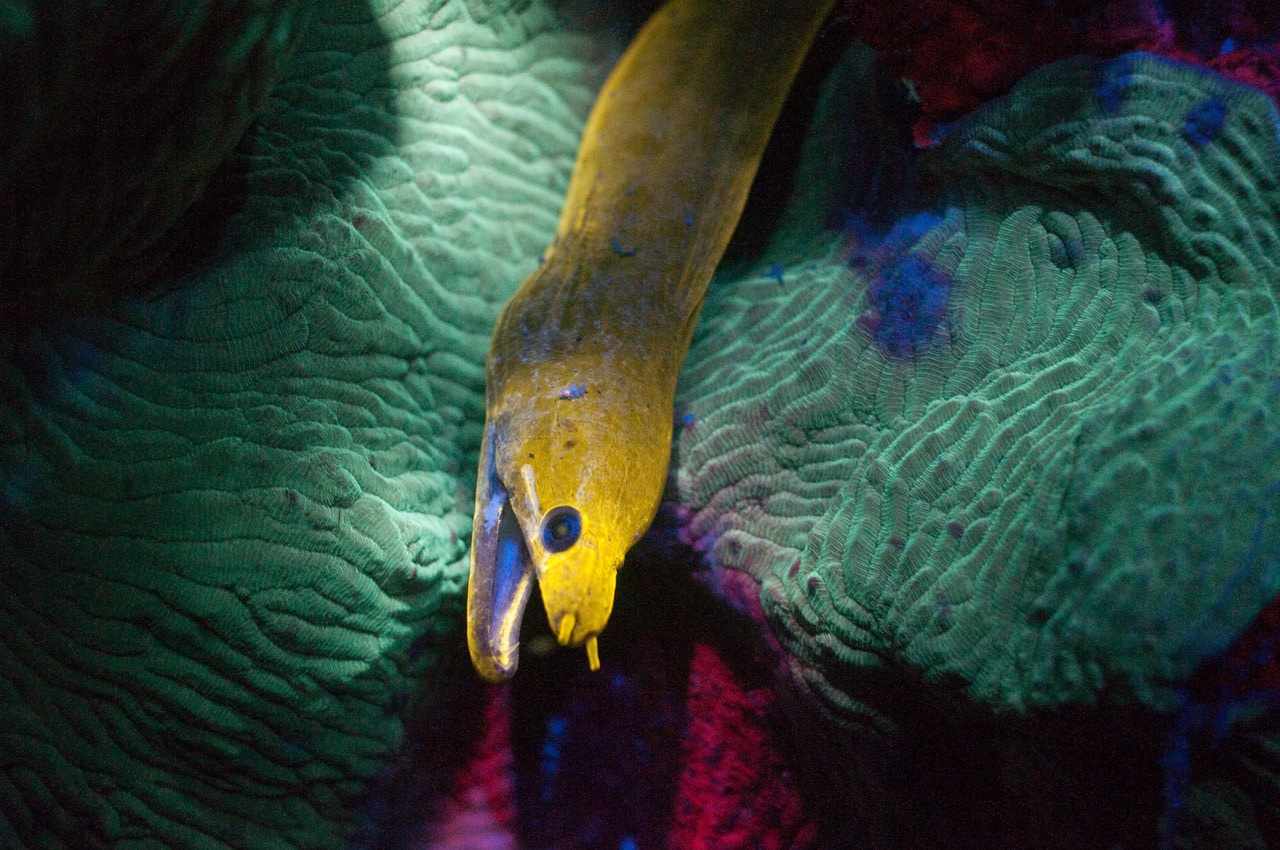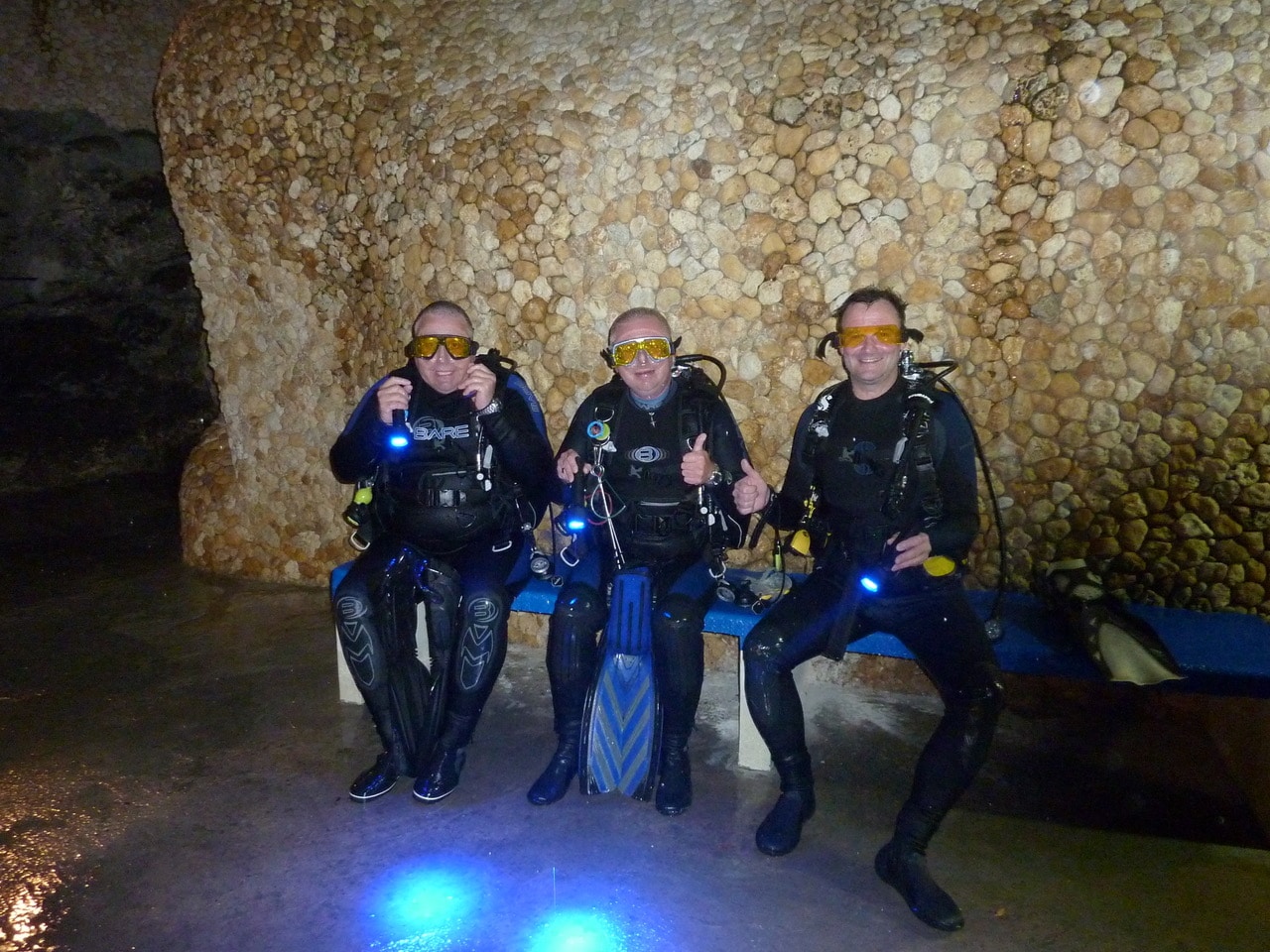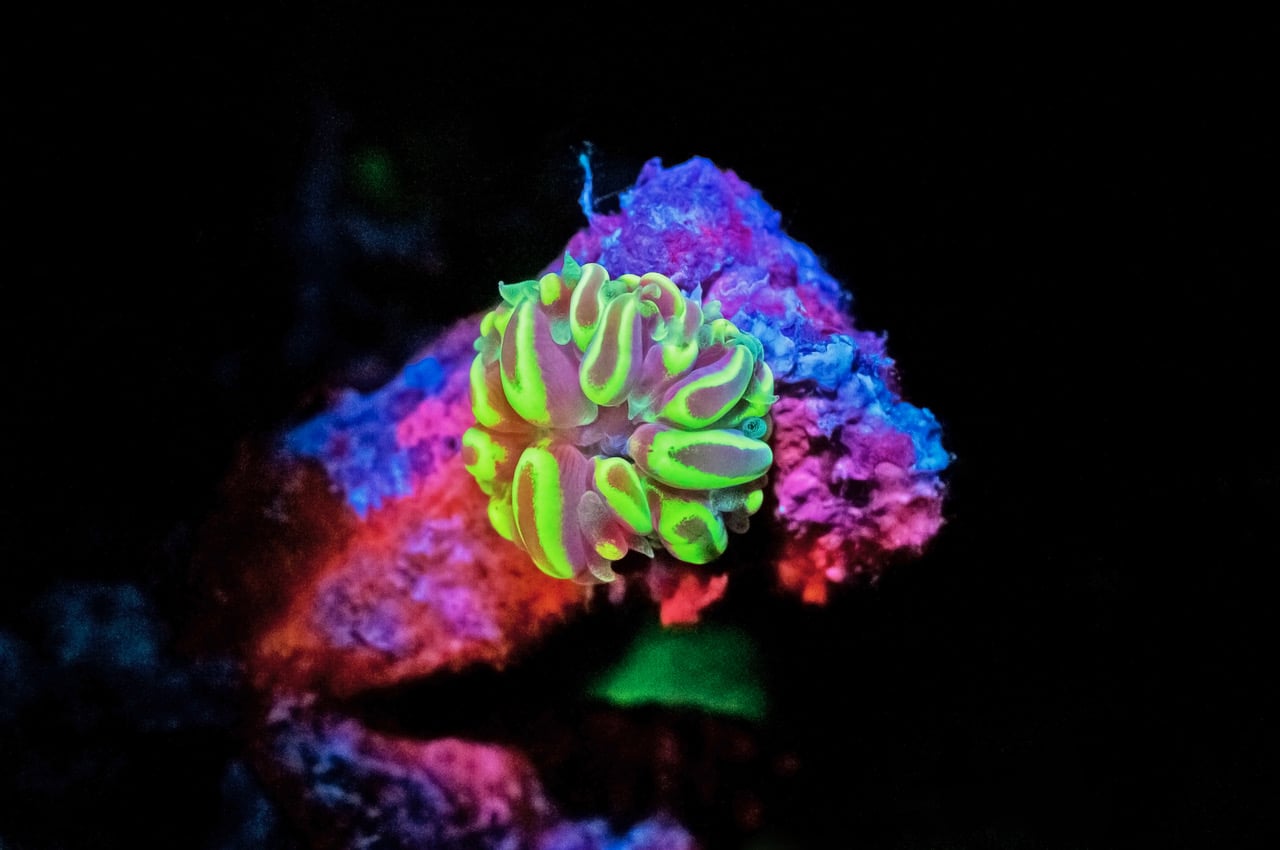News
Fluro diving: have you ever heard of it?
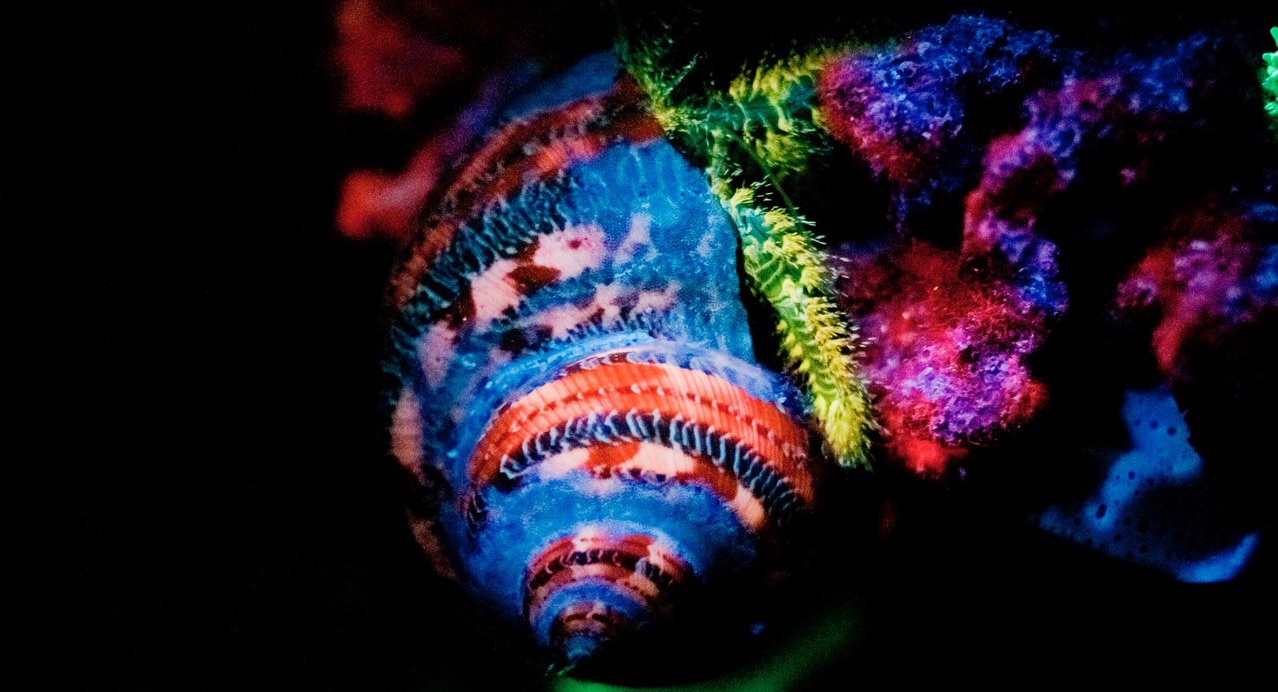
The next in an exciting new series of blogs introducing some of the amazing marine life you can encounter at Magic Resorts in the Philippines…
Fluro diving has been around for quite a few years now but it is still not really common. On the internet you can find loads of information about fluorescence and how it’s achieved, but still doesn’t really answer the questions about what a fluro dive is.
Here at Magic Island, we have a lot of guests who never heard of it before, and yet it’s such an incredible experience!
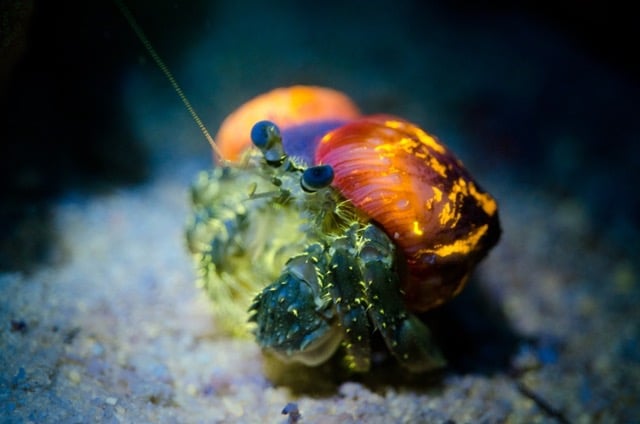
Read on and learn everything you need to know about fluro diving and why you shouldn’t miss the opportunity to do one!
Basically, fluro dives are night dives, using special lights and lenses to allow us to see fluorescent light emitted by certain organisms and creatures. It gives the underwater world a whole new dimension, one you have never experienced before!
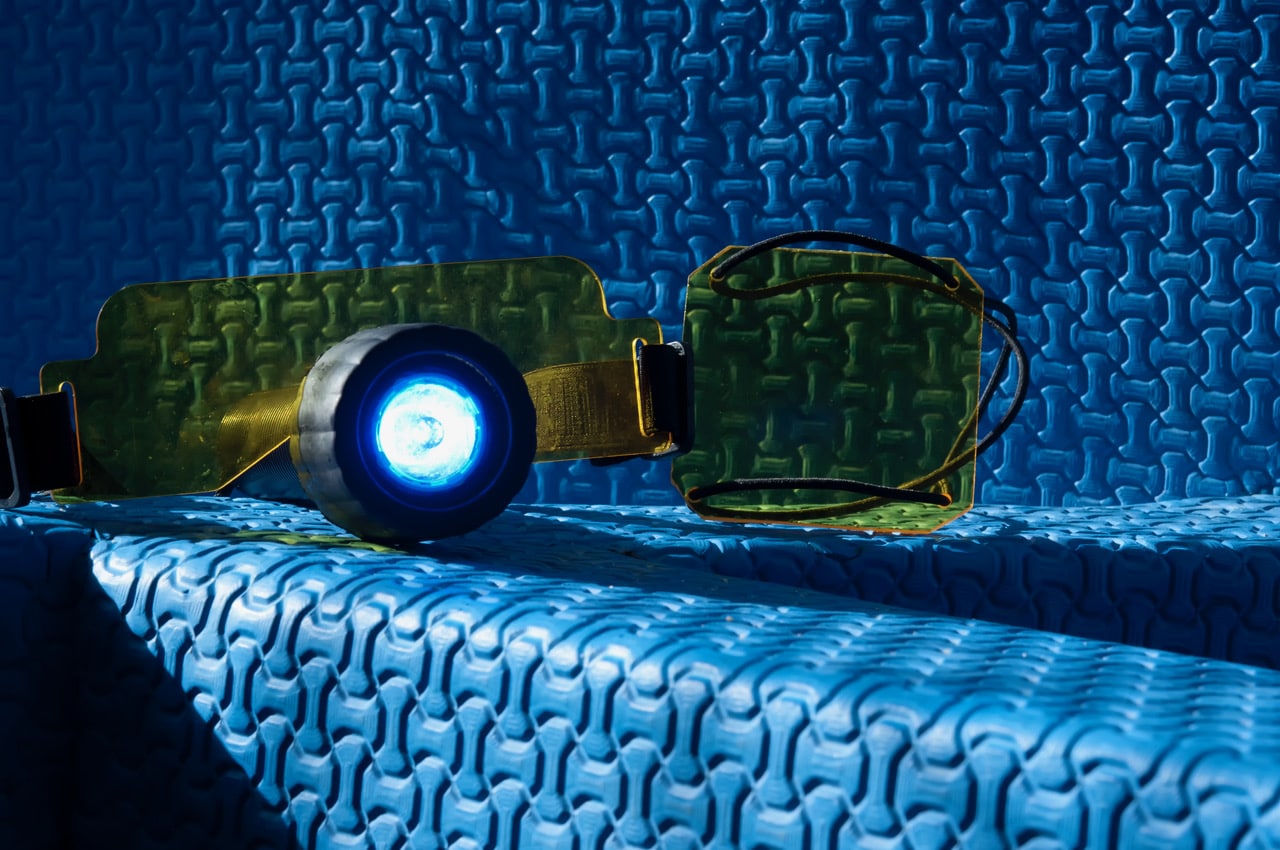
That Scorpion fish that was always so well-camouflaged during a regular dive, is now glowing bright red, and those soft leather corals you usually swim by without even giving them a look, are now bright green! Suddenly there are spots of green and red glowing all over the reef!
What is usually a norm becomes the extravagant and if it doesn’t glow, it’s no longer special, regardless of how exotic it may be.
So, before you jump in, there are a couple of things that you need to consider…
1. Right equipment
First you need to make sure you have the right equipment. A light with a simple blue lens will not really give you the effect you’re looking for. Although there are different lights that can be used, we have found that the “black light” works best. You can check if it’s the correct light by shining it in a dark room: if you get the disco light effect (your teeth glow bright white or the white T-shirt you’re wearing looks like its plugged in), it’s NOT the correct one. A black light would make those things look dark blue or black. You will also need a yellow filter lens to block out the other light, enhancing the fluorescent light.
2. Dive planning
The second thing is dive planning. First, you should not do your first night dive as a fluro dive, the lights used are not nearly as bright and your vision is restricted making buoyancy and navigation a challenge. Also, you cannot be around other divers who are using normal lights as this will ruin the effect. The good thing is that you really don’t need to go deep or far to see all the crazy stuff. On Magic Island’s house reef at high tide you can be at 2m/7ft deep and just a stones throw away from the dive centre and see enough to keep you entertained for hours. Of course, all usual night dive planning should be considered.
If you have never done a fluro dive, you should definitely make one! In Magic Island Dive Resort in Moalboal, Cebu in the Philippines we offer this possibility. Our favourite way to make this dive: head out during sunset to see the famous Mandarinfish mating and when the sun has set we switch over to the fluro lights and lenses for the second show – a two for one deal!
 Visit Magic Oceans Anda, Bohol and Magic Island Moalboal, Cebu… find out more at www.magicresorts.online.
Visit Magic Oceans Anda, Bohol and Magic Island Moalboal, Cebu… find out more at www.magicresorts.online.
Gear News
Introducing the TR-80, IR-50 and CS-30 Regulators from DYNAMICNORD

Whether you are a beginner or a professional diver – with the three new main regulators from DYNAMICNORD, everyone will find their favourite regulator. They all look super stylish.
Excellent performance with the TR-80
Quality and performance are the be-all and end-all for regulators. It is not for nothing that the TR stands for Tec Reg. The innovative design of the TR-80 guarantees absolute reliability – even in ice-cold waters.

Perfect breathing effort at 0.8 J/l / certified for diving in waters below 10 degrees / structural design made of solid brass for best cold protection / membrane-compensated design with dry seal of the first stage / reduced exhalation effort thanks to optimized exhalation membrane and bubble deflector / adjustable Venturi (dive/predive) and adjustment knob for individual inhalation comfort / innovative design of the front cover prevents free-flow in strong currents or when diving with scooters / design made of sandblasted brass, matt chrome finish / 2 HP and 4 LP outlets / mouthpiece made of high-quality, anti-allergic silicone for maximum comfort.


Amazing underwater adventures with the IR-50
The IR-50 is the top regulator for advanced and experienced divers. Natural breathing is the essence of this regulator.

Ideal breathing effort at 0.8 J/l /certified for diving in waters below 10 degrees / compensated membrane / adjustable venturi (dive/predive) and adjustment knob for individual inhalation comfort/ outlet valve and deflector for minimum exhalation effort and reduction of bubbles on the face / design made of sandblasted brass, matt chrome finish / 2 HP and 4 NP outlets / mouthpiece made of high-quality, anti-allergic silicone for maximum comfort.


The Workhorse – our CS-30
For diving centres and diving beginners – the workhorse stands for strong construction, reliability and robustness. Perfect for your training.

Optimal breathing effort at 0.8 J/l /recommended for diving in waters above 10 degrees / non-compensated piston / adjustable venturi (dive/predive) / outlet valve and deflector for minimum exhalation effort and reduction of bubbles on the face / design made of sandblasted brass, matt chrome finish / 1 HP and 3 NP outlets / mouthpiece made of high-quality, anti-allergic silicone for maximum comfort.


Octopus OP-30
The OP-30 is the ideal addition to all DYNAMICNORD regulators. It is identical in construction to the CS-30.

The TR-80, IR-50, CS-30 (DIN & INT) regulators and the Octopus OP-30 are available from DYNAMICNORD dealers and in the online store.
DYNAMICNORD – Your Outdoor Companion.
Marine Life & Conservation
Paul Watson Released as Denmark Blocks Japan’s Extradition Bid

Renowned anti-whaling activist Paul Watson has been released from custody in Greenland after spending five months in detention. Denmark’s Justice Ministry rejected Japan’s request for his extradition, citing insufficient guarantees that his time already served in custody would be credited against any potential sentence.
The 74-year-old Canadian-American was arrested on July 21 in Nuuk, Greenland’s capital, when his ship docked to refuel. His arrest was based on a 2012 Japanese warrant related to a 2010 encounter in Antarctic waters. Japan alleged Watson obstructed operations and caused damage to a whaling research ship during efforts to disrupt illegal whaling. Watson has consistently denied these claims, maintaining his commitment to marine conservation.
Denmark, which oversees extradition matters for Greenland, concluded that while the legal conditions for extradition were met, the lack of assurances from Japan regarding time-served credit made extradition untenable.
In a video shared by his foundation, Watson expressed gratitude and relief, saying, “After five months, it’s good to be out… and good to know they’re not sending me to Japan.” He added that the most difficult part of his time in custody was being separated from his two young sons.
Watson is a pioneering figure in marine conservation, known for founding the Captain Paul Watson Foundation in 2022 after decades of activism with the Sea Shepherd Conservation Society. His bold efforts to defend marine life have earned him widespread support, including from celebrities and conservationists. His work has also been featured in the acclaimed reality TV series Whale Wars.
Watson’s lawyer, Jonas Christoffersen, praised the decision, stating, “We are happy and relieved that Paul Watson is now free.” He added that Watson is eager to reunite with his family and continue his vital work.
The arrest occurred while Watson’s vessel, the M/Y John Paul DeJoria, was en route to the North Pacific with a team of 26 volunteers to intercept a Japanese whaling ship. His foundation described the arrest as politically motivated and emphasized that Watson’s actions were focused on ending illegal whaling practices.
Japan resumed commercial whaling in 2019 after leaving the International Whaling Commission, asserting that whale meat is a cultural tradition. Conservationists, however, continue to challenge these practices, highlighting their impact on marine ecosystems.
Despite the challenges, Watson remains steadfast in his mission to protect marine life and bring attention to whaling practices. His dedication to ocean conservation has made him a globally respected advocate for the environment.
-

 News2 months ago
News2 months agoIconic SS United States to become the World’s Largest Artificial Reef
-

 News3 months ago
News3 months agoBook Review – 52 Assignments: Underwater Photography
-

 Gear News3 months ago
Gear News3 months agoDYNAMICNORD – New German diving brand enters the British market
-

 News3 months ago
News3 months agoExploring Cenote El Pit: A Diver’s Dream
-

 Gear News3 months ago
Gear News3 months agoTry BARE drysuits (and maybe even win one!) this Friday with Sea & Sea at North West Dive Fest
-

 Marine Life & Conservation3 months ago
Marine Life & Conservation3 months agoBook Review: Coral Triangle Cameos
-

 Blogs2 months ago
Blogs2 months agoDive the Egyptian Red Sea this Autumn with Regaldive
-

 News3 months ago
News3 months ago2024 Ocean Art Underwater Photo Competition Announced


